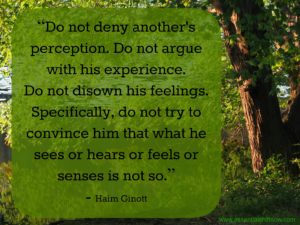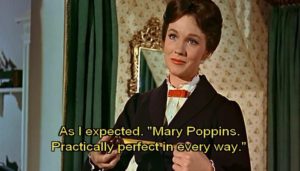“Do you want to do an extra, bonus maze, or save it for later?” I ask my second-grade student, whom we’ll call Rachel.
“Later! Later!” Rachel chants.
“Ok. We’ll do it next time,” I say as I tuck it into her folder.
“You never know…” she says with an impish grin. This is one of her favorite phrases.
“Well, yeah. I guess I could decide not to do it next time. Or I could forget.”
“Or,” she cuts her eyes to the side and continues grinning, “One of us could die.”
I think I see where this is going, so I say, “Oh, that would be very sad. I’d be really sad if you died. And if I died, well, I guess I’d be dead, so I wouldn’t feel anything.”
She nods. This isn’t really what she meant. I bite.
“What about you? How would you feel if one of us died?”
“Well, if I died, I wouldn’t feel anything.” She somehow manages to look even more impish than before. “And if you died…well……I would have less work.”
Uh huh. That’s what I thought. Doing my best to reflect her feelings accurately while reframing the, uh, extreme nature of this statement, I say, “Ah. So you don’t like doing so much work, so you wouldn’t mind if I disappeared?”
“I guess I wouldn’t care.”
As I see it, I had a few choices at this point. I could take this personally and be hurt. I could get angry at the disrespect—maybe she has Oppositional Defiant Disorder! I could laugh at the lack of subtlety of this message (my natural urge). Or I could listen respectfully and make sure she felt heard, as I would with any less drastic emotional statement. Luckily this was a non-triggered moment for me, so I was able to choose the last response.
There have been times when I would have taken this dramatic statement as a personal rejection. You know those tough moments we all have some times, the kind where you wonder why you ever thought you could possibly help your students, when you feel every other educator in the world has some secret sauce that you lack, when you start thinking that maybe being a florist would have been the best choice after all?
At those times, I comfort myself by thinking, “Well, at least my students know I care deeply about them.” And though it makes me cringe to write it out explicitly, the unspoken corollary is, “And they like me.” I have to admit it: I am often emotionally invested in being the educational therapist that everyone loves to go to.
I was lucky enough to be part of an intimate, nine-month long study group of educational therapists working with Dr. Ann Gordon, PhD psychologist and Board Certified Educational Therapist, exploring the experience of transference and counter-transference in our work with kiddos. The cliff-notes version: kids often project their stuff about their parents on us (transference), and this projection often elicits emotions and responses from us that mirror their treatment at home from their parents (counter-transference). In other words, if all of a sudden you find yourself atypically annoyed at a kiddo and you can’t quite put your finger on why, it may be that the kid is unconsciously eliciting this annoyance from you because that is the most common response the kid experiences from her or his parents.
For our part, because we educators are humans too (sucks, right? I thought the letters after my name would give me zen-like super-powers of self-awareness and calm), we bring our own stuff to the relationship. Sometimes we get stuck in projecting too, either onto the kiddo or onto their parents.
In this Transference/Counter-transference group, the theme that came up for me again and again is that I had nigh infinite patience with any kid and any behavior–as long as I feel they like me. If they like me, it’s you and me against the world, baby. If they don’t like me, then try as I might, I have trouble finding my groove, feel pressured to perform, and have much less patience than I wanted to have.
Simply put: I want my students to like me. On those tough days, their positive feelings about me and our work together make me feel effective and helpful and, well, ok. If they don’t like me, I am left with doubt–am I a good enough educational therapist? A good enough person? Am I ok?
These are my feelings and my needs, and I know how important it is to take care of them myself (with friends, family, mentors, colleagues and other peers). I know how unfair it is to make my issues into my students’ issues. It takes a LOT of work, though, to not sometimes, somehow, usually implicitly, try to demand that my students like our work together, and by extension, me. As long as I am calm and centered, I understand in the core of my being that I don’t want them to feel like they have to pretend to love educational therapy just to satisfy me and make me feel good about the job I am doing.
 You know how sometimes we tell children, “You don’t have to like it. You just have to do it?” Heck–sometimes I have to tell myself the same thing (cough cough, invoicing parents, cough). Well, it is important to listen to our own words when we find ourselves saying that. It’s true. But far from being a line meant to gain compliance, we need to honestly be giving our kiddos permission to not like what we are doing. Or even us. Once we give them that space, we can both move on and just do it.
You know how sometimes we tell children, “You don’t have to like it. You just have to do it?” Heck–sometimes I have to tell myself the same thing (cough cough, invoicing parents, cough). Well, it is important to listen to our own words when we find ourselves saying that. It’s true. But far from being a line meant to gain compliance, we need to honestly be giving our kiddos permission to not like what we are doing. Or even us. Once we give them that space, we can both move on and just do it.
Now, I don’t know if the group is what helped me with Rachel, or whether it was her impishness or her ingenuousness, her youth or her mild autism, but with her, I felt calm and centered and could look at her behavior for what it was and what it wasn’t: it was communication, and it wasn’t about me. I was able to recognize that Rachel needed this feeling to be heard and validated, as all humans need all their feelings to be heard and validated.
So, the next time a student expresses less than enthusiastic feelings for your time together or for you, take a deep breath, vent to your grown-up friends, call on your most zen-like superpowers, and make the calm and centered choice.






[…] meeting them where they are, and giving them a safe place to express their whole range of emotions, even the more challenging and less gratifying ones. As the daughter of a mom with narcissistic personality disorder, it has been a super important […]
I thought what the girl said was a logic statement and a joke, but she didn’t have the perspective taking to know that not everyone has heard this joke/story:
A man had offended the king and was sentenced to death. He fell to his knees before the king and implored, “Oh your majesty! Spare me but for one year, and I will teach your horse to talk!” The king was amazed and granted his wish.
The man’s close friend and brother upbraided him, saying, “Why did you make such an absurd promise?”
The man shrugged and replied, “In a year, the king may die. In a year, I may die. In a year, the horse may talk!”
You never know… ;-)
I too enjoyed this post tremendously. I think that as E.T.’s there are times where we absolutely must put the E. on the back burner and try to be T’s to the best of our abilities. Sometimes I feel ‘guilty’ taking a parent’s money if she/he is paying me to work on organizational skills and their child is sobbing under a blanket in my office while they tell me about something that happened in school or at home that they must divulge before any productive work can take place. There are other times where I must take a deep breath ( or several) before, during, and after working with a particularly difficult client week after week . Often, there will be light at the end of the tunnel but at times, that tunnel seems mighty long and dark! I look forward to meeting you in person hopefully at the AET conference day after tomorrow. I am Dominique Baudry’s sister and have a practice in Arlington MA.
I feel you. In fact, I’ll be talking about that very thing at my presentation Friday (Saturday?). You have to pay attention to the emotional component. It makes all our work better, but if they are that upset, a) you aren’t going to get anything done academically anyway, b) if you tried to ignore their emotions and move forward, you’d damage your relationship with them, which is key to helping them learn, and c) you would miss working on what they really need help with at that moment. I’ve felt guilty too at times, but then I remind myself that in the big picture, helping them feel safe and connected and build self-soothing and coping skills is going to be more useful for longer and at a more profound level than having an organized binder ever will. Keep up the good work and say hi at the conference!
This was extremely helpful, thank you so much for sharing Diana. I am having a tough time, myself, so even though I am not an educational therapist, I still feel deeply related to your post. I know that my own turmoil affects my performance and also my communication towards others. Truth is I don’t feel completely heard, validated, understood nor supported.
But on the other hand I have a team that depends on me and I know that my issues have to stay at a safe distance to keep my team work unaffected. I am grateful I have this team, making things slightly better for me, so trying to be there is the very least I can do.
I’m glad it was helpful. Of course, you also shouldn’t have to deal with all those feelings alone–call friends, family, your own boss (if appropriate), a counselor, whatever grownup peers or mentors are there for you. That will help you work through and be able to contain those feelings so you can stay centered and calm and give your team your best. Good luck!
Thank you so much, Diana, for sharing this post about your experience and your reaction. As I have been learning and growing with my students over the years, I have struggled with this same issue, wanting to be “liked.” To hear that you, an experienced educational therapist whom I’ve come to respect very highly as I’ve read your posts and viewed your webinar, have the same reaction at times, but that you’re distancing your personal feelings by acknowledging the concept of transference which you’ve explored through an AET study group, is very reassuring to me. Having mustered my nerve and applied to AET, so that I can continue to grow, I’m delighted to have recently been accepted as an Associate member. I’m looking forward to continuing to learn from you and from your colleagues.
I’m so glad you enjoyed it. And yes, I honk it is universal, and the best we can do is to be aware when it is happening. Congratulations on becoming an associate member! Are you going to the national conference later this month?
Honestly, your webinar and your posts have inspired me to apply for membership. No, I’m not able to attend the conference, but I hope that we will meet sometime in the future.
I can’t tell you how good that makes me feel! Yes, in the future.
Diana, this is a terrific post. It took me straight back to a difficult session I had with a 3rd grade client last week which left me feeling incompetent and impatient — two feelings that I hate and try to avoid like the plague. Your post is helping me rethink the session and try for a different mindset for tomorrow. Thank you!
I’m so glad you found it helpful. I’m also relieved, although surprised, that someone with your vast experience and immense talent (and an advanced black belt in karate!) still has days like that. If anyone could achieve zen-like superpowers, it would be you.
I appreciate your compliments, but those zen-like superpowers continue to elude me. No matter how long I’m in practice, I’m still practicing to get things right?. After thinking about your blog, I had a much better mindset today when I worked with the young man I mentioned in my original comment. We both had a much more productive and calmer hour together. I also brought up your blog in a supervision session today and used it as “assigned reading” to be discussed at our next session. You are having a great impact, Diana! Looking forward to seeing you in person in a few weeks.
That’s awesome. I’m so happy.